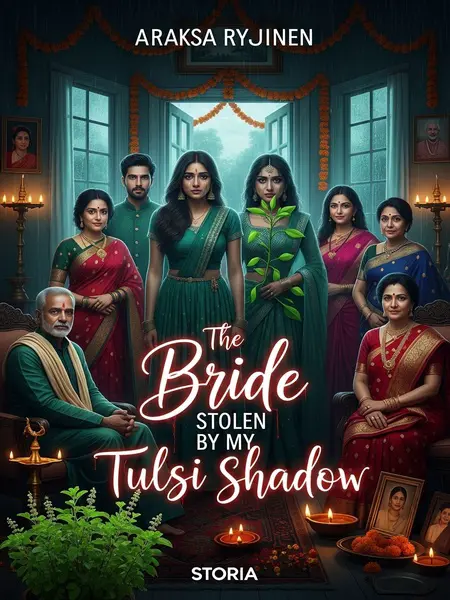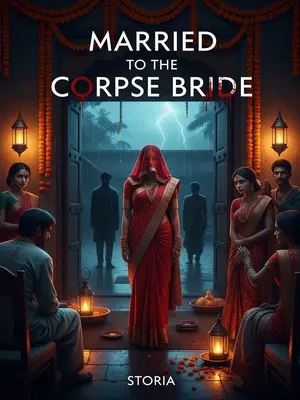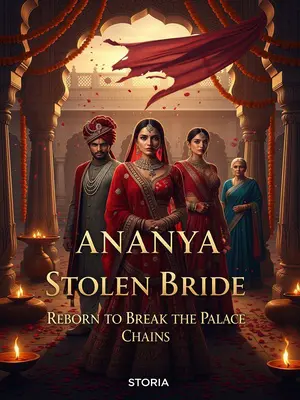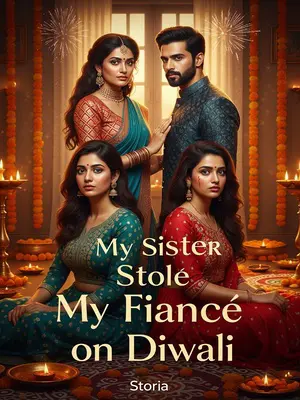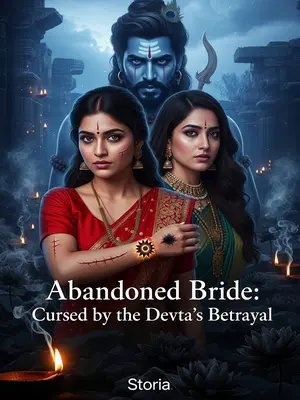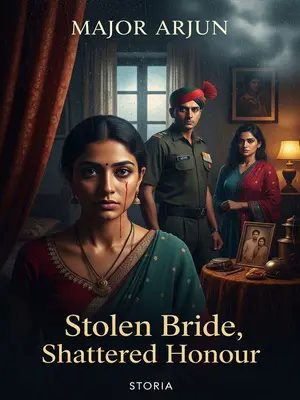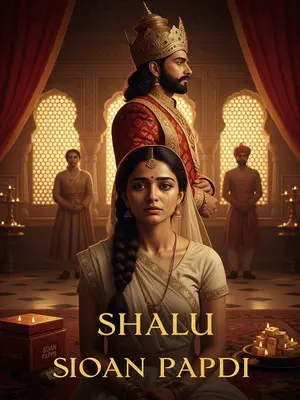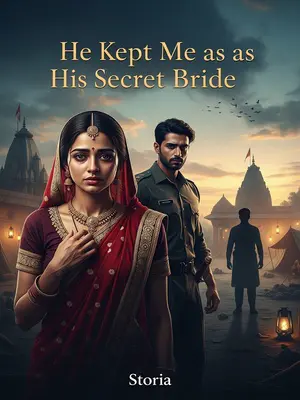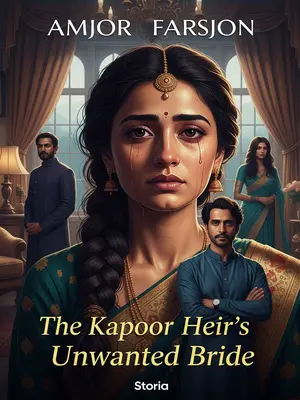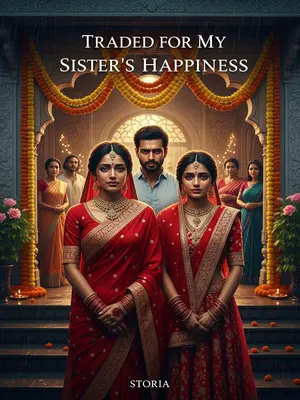Chapter 2: The Wedding Night
On the wedding night, the soft glow of the red diya flickered gently.
The thick scent of mogra garlands hung heavy in the room, mingling with the sweet sandalwood from the agarbatti burning on the windowsill. Somewhere, a mosquito buzzed against the mesh window, and the old wall clock ticked louder than usual. Shadows danced on the whitewashed walls as the diya's flame trembled each time a night breeze slipped under the door. From the neighbouring flat, a sudden burst of laughter from the television—a classic Bollywood shaadi scene—drifted in, only to be swallowed by the hush of the night.
Arjun entered, draped in the shadows of night, his bearing as radiant and elegant as the early morning sun over Lucknow.
His sherwani still carried the scent of attar and the faintest trace of sweat from the evening’s rituals. His steps were soundless, as if he glided over the old mosaic floor. The gold-embroidered dupatta hanging from his shoulder caught the diya’s glow, throwing tiny sparks of light onto the ceiling.
The bride’s veil was lifted.
The red silk slipped back, catching for a moment on the heavy maang tikka. Her eyes—my eyes—shone through the kohl, and her lips curved in the same uncertain smile I had practiced so many times before the mirror. The ivory of her skin glowed against the deep red of the wedding saree.
The woman beneath was delicate and stunning—peerlessly beautiful—even the curve of her smile was identical to mine.
Every detail was perfect, from the neat parting of her hair to the faint pinkness at her cheek. A strand of jasmine nestled behind her ear. Even her nervousness, the way her hands fidgeted with the pallu, was just like mine. It was uncanny.
Arjun stared, momentarily dazed, as if transfixed.
His eyes widened a fraction, a flicker of confusion passing through them before he mastered himself, his features settling into an inscrutable calm. For a long moment, neither of them moved, the silence thick as malai on hot milk.
I remembered what Tulsi had said the night before.
Her voice echoed in my ears, soft as the soughing of leaves. I remember her silhouette, outlined by the moonlight pouring through the jharokha. She spoke as if confessing a long-held secret, her tone both apologetic and proud, like a child who has finally outsmarted the adults.
She told me she had long been able to take human form, but had waited, endured, all for this day.
Her words were laced with longing and a sort of old pain, as if she’d watched me from the courtyard for years, her roots entwined with my fate. “I waited for your wedding, didi,” she said, “because only then could I become truly human.”
She said she envied my status, envied the love I received from my family since childhood, but what she envied most was that I had such a perfect husband.
There was bitterness when she spoke of Ma’s gentle hands, Papa’s indulgent smile, Bhaiya’s jokes. She lingered over Arjun’s name. “You have everything, Riya. Even love I never knew existed.”
She had seen him only once and fell deeply in love.
I remembered that day—Arjun, in his school uniform, riding his bicycle past the house, Tulsi leaves brushing his sleeve. She’d watched from her earthen pot, silent and invisible, yet that single moment had sealed her heart.
She said, thankfully, Arjun did not love me—otherwise, she would not have been able to resist grinding my bones to dust, leaving nothing behind.
Her voice had been soft but chilling. I shivered, hugging myself. The breeze had picked up, the tulsi leaves outside whispering secrets only the spirits understood.
She wanted me to watch, to see for myself how Arjun would fall in love with her, step by step.
She wanted me to witness my own erasure—to become nothing more than a shadow, forced to watch my life unfold with someone else at its centre. It was the cruelest punishment.
But how could that be possible?
I felt indignant even in death. Arjun, with his stormy temper and cold manner, would never fall for such a trick. I had known him since childhood, after all.
Arjun’s fierce reputation was known throughout the city.
From the fruit seller to the rickshaw-puller, everyone in our lane had a story about Arjun’s temper. The old dhobi still tells tales of how Arjun once broke his stick over a stray dog that bit me. No one dared cross him.
He once dragged a man behind his Royal Enfield down an entire street, leaving a trail of blood, simply because that man had offended him with a disrespectful remark.
It had become legend—Ma would recall it with shudders, warning me never to anger him. “Beta, he is good at heart, but the world is not so simple. Such anger can destroy families.”
Such a man always wore a cold face, even with me, showing not a hint of affection.
His eyes were always guarded, his laughter rare. Even on Holi, when colours flew in the courtyard, he would only smile faintly, keeping his distance from the chaos.
Even when others congratulated him on marrying me—the legitimate daughter of a respected family—he would only say indifferently, “It’s just a match arranged by our parents, nothing but a formality.”
Relatives would nudge each other, muttering, “Look, he is so stiff, no romance at all.” I felt the sting of it, but I learned to ignore the whispers.
So I knew, from early on, that Arjun did not love me.
I had told myself not to hope for too much. Ma said, "Pyaar toh shaadi ke baad hota hai, beta. Sab waqt ka khel hai." Still, deep down, I always wondered if he could ever care for me.
He even disliked me.
I saw it in the way he would avoid my gaze at family gatherings, how his words would often be curt, his tone flat, as though he wished to be elsewhere. It hurt, but I accepted it as my fate.
